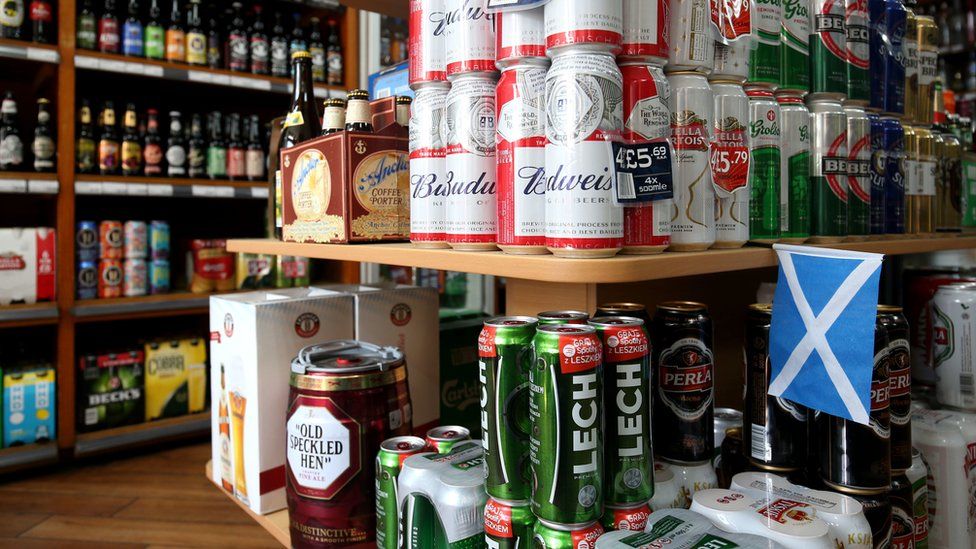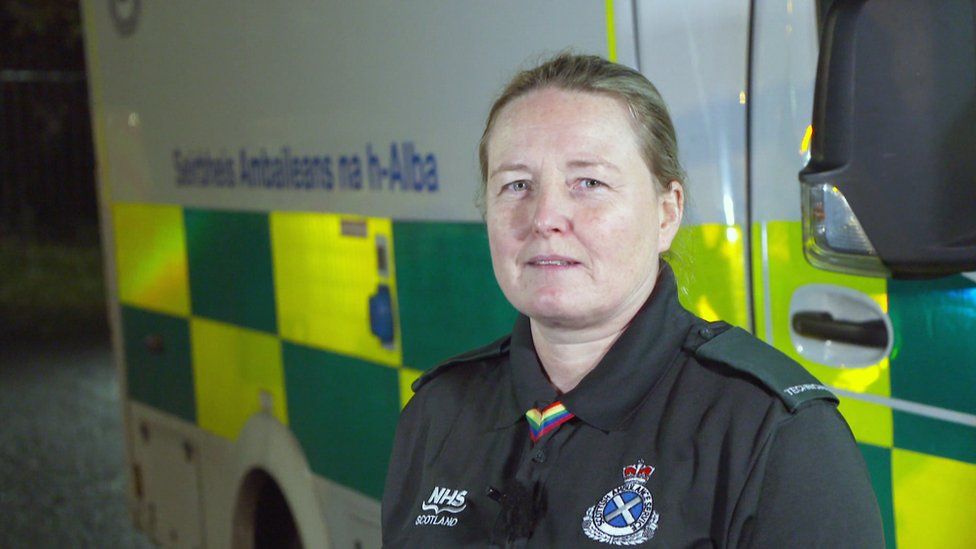 IMAGE SOURCE,PA MEDIA
IMAGE SOURCE,PA MEDIAHowever, ambulance crews found that after April, despite licensed premises remaining closed, the number of calls increased again, with these calls spread throughout the week rather than concentrated at weekends
At the height of the pandemic, from April to June 2020, there were 18,832 alcohol-related callouts – 16% of all callouts.
“During the pandemic, both in the UK and abroad, licensed premises – including bars, restaurants and nightclubs – faced significant restrictions, including closures and curfews, which helped to reduce spread of the virus,” Prof Fitzgerald said.
“However, we know that these restrictions also led to many people drinking more alcohol at home.”

‘People were pouring bigger measures’

Gail Macfarlane has been an ambulance technician with the Scottish Ambulance Service in Glasgow for the last five years.
She said: “Almost every day we get an alcohol-related job, people on the street who are alcohol dependent or – at this moment in time – we get a lot of social drinkers who have overdone it.
“When people are enjoying themselves they get carried away. They have falls, get into fights, and that means jobs for us to do. It can mean we don’t get to elderly people who had a fall, because we’re dealing with others because of their social drinking and intoxication.”
She said people drinking at home during lockdown could bring its own problems.
“When the pubs and clubs were closed more people were drinking in the house, and at home people were pouring bigger measures than you get in a bar,” she added.

Prof Fitzgerald said: “The views expressed by paramedics are powerful and give pause for thought about whether business recovery post-Covid has to mean a return to the ‘mass intoxication’ described.
“This is surely an opportunity for politicians and clinicians to show leadership in pushing for better alcohol policies that protect the NHS and frontline services. At a time when policymakers want to support the hospitality sector, but also wish to protect health services, there is an opportunity to put in place win-win policies that can do both.”
‘Reinforces previous findings’
Alison Douglas, chief executive of Alcohol Focus Scotland said, “Whether it’s weekend nights out or weekdays at home, these findings show the impact of alcohol on the Scottish Ambulance Service is unacceptable and unsustainable.
“Paramedics should not have to dread working a Friday or a Saturday night shift. The increase in callouts related to home drinking during the pandemic is concerning and reinforces previous findings that some of us, particularly heavier drinkers, have increased our drinking.
“With a sixth of all callouts being alcohol-related in 2020, we agree that further action needs to be taken to change Scotland’s unhealthy relationship with alcohol.”
The Scottish government has been contacted for comment.



No comments:
Post a Comment
Note: only a member of this blog may post a comment.